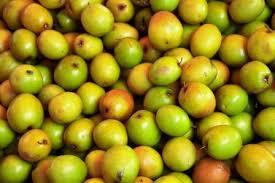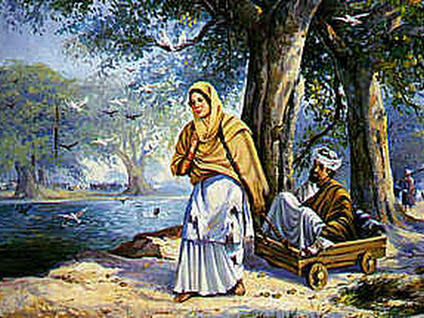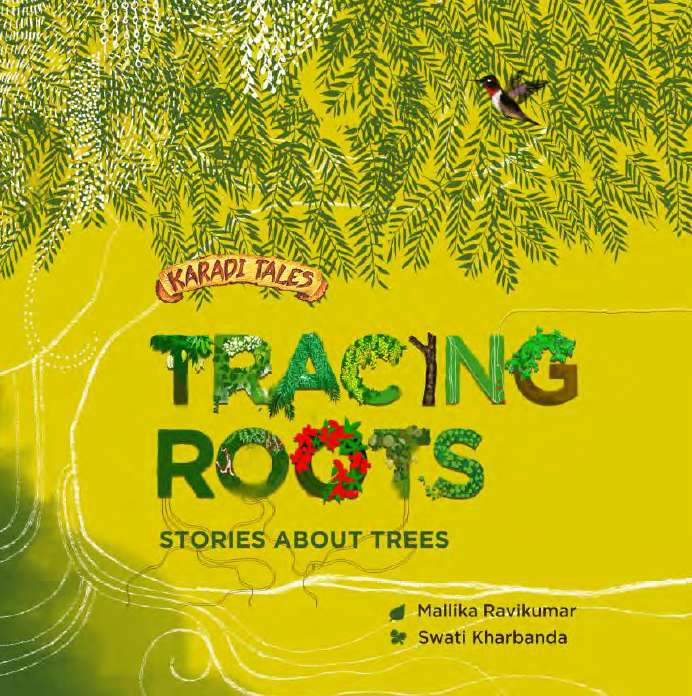On Guru Nanak Jayanti, here’s a little-known story you can tell your children about a popular Indian tree and its connection with one of the most famous Gurudwaras of Punjab. Many will be familiar with this tree for its unique sour-tangy fruits.

The Story of the Dukh Banjani Ber
There once lived a rich landlord named Duni Chand Khatri in the town of Patti in Punjab. He had five beautiful daughters.
Wanting to test their devotion towards him, Duni Chand decided to ask them all a question.
“Who is it that provides for you and sustains you?” he asked the oldest one.
“It is you father,” she answered, bowing down before him to touch his feet.
Duni Chand was pleased with her reply and summoned his next daughter.
“Who is it that provides for you and sustains you?” he asked his second daughter.
“It is none other than you father,” answered the second girl, respectfully.
Pleased, Duni Chand smiled and called the next daughter. So it went on with the third and the fourth daughters.
Finally he called his youngest daughter Rajni, the most special child in the house.
“Who is it that provides for you and sustains you?” he asked her.
“The Lord Above,” she answered, looking up towards the skies.
Duni Chand was upset. “What about me?” he asked, walking up to Rajni and glaring at her. “Does your father not provide for you?”
Rajni looked into her father’s eyes without flinching.
“The Lord sustains us all Father!” Rajni said, calmly.
At seeing the girls persistence, Duni Chand flew into a rage. He asked again and Rajni repeated that it was the Almighty alone who sustained the whole world.
Furious with Rajni and her response, Duni Chand decided the girl needed to be punished to show her how miserable her life would become without her father’s support. In a fit of anger, he got her married off to a leper. His family and neighbours were shocked but Duni Chand was determined to teach his daughter a lesson.
Rajni’s sisters looked on in helplessness and shock as Rajni was married off to a man who couldn’t walk or stand straight. His skin was scarred and his fingers reduced to stumps.

But Rajni herself took it rather well. She decided to look after her husband with care and took him with her to Amritsar. There she found herself a job as a cook in a gurudwara.
“Here…you sit here under the shade of this Ber Tree,” she’d tell her husband, as she went to work each morning in the common kitchen of the gurudwara that fed thousands. “I’ll come back and take you home when I finish.”
Rajni’s husband would wait for her each day under the shade of the Ber Tree by the holy sarovar (tank) and listen to Guru Ram Das, the 4th Sikh Guru, who is also said to have founded the city of Amritsar and the holy sarovar about 400 years ago.
Sitting there, Duni Chand often wished he could bring his wife some reprieve and happiness.
One day, as he sat under the Ber tree, Rajni’s husband reached out to touch the water of the holy sarovar in the centre of the gurudwara. Holding on to the trunk of the ber tree, he stretched out his leg to dip it in the cool healing water.
To his surprise, he found that he was miraculously cured. All the sores and marks on his skin vanished. His stumpy fingers healed and his limbs straightened out. He was a new man!

When Rajni returned from the langar kitchen later that day, she could not recognize her husband.
“This is a miracle!” she exclaimed. “How did this happen?”
“I…I…I can’t believe it!” her husband cried and told her all that had occurred.
Seeing Rajni’s husband miraculously cured of leprosy, people then began to call the Ber Tree the Dukhbanjani ber or the tree that relieves pain and suffering.
It stands in Amritsar in the courtyard of the Sri Harmindar Sahib Complex of the Golden Temple near the Langar Hall and is visited by thousands.

More Stories about the Ber Tree
The Ber is a common Indian tree and grows well even in dry scrub forests. It’s tangy fruit is enjoyed by all, particularly children. It has thorns on its branches and its leaves have three central veins.

The Tree finds a mention in the Ramayana. You must have heard of the Shabari episode in the Epic where an old tribal lady feeds Rama, ber fruits after tasting them to check if they were sweet. While Lakshman refuses to take the soiled fruits, Rama accepts them, saying he could not refuse anything that was given to him with love and devotion.
But did you know that the story is not found in the Valmiki Ramayana? It comes down to us from the Odiya Ramayana that was written much later – and somehow it became embedded in the popular narrative.

The Ber also finds mention in another episode of the Ramayana, which is not as popular as the Shabri story. You can read that story and lots of other stories about trees in my Book Tracing Roots with Karadi Tales!

So, the next time you travel to Amritsar, be sure to take note, not just of the Golden Temple, it’s vast complex, the Tank and the awesome langar but also the Dukh Banjani Ber that has been standing as a silent witness to 400 years of history and share this interesting story!
FOR MORE STORIES LIKE THIS ABOUT INDIA, SIGN UP TO THE MONTHLY NEWSLETTER
TO DIP INTO STORIES, MYTHS, ART AND MORE ABOUT FLORA AND FAUNA, FOLLOW MY INSTAGRAM PAGE ANCIENT NATURE TALES
———-

Bobby Roppolo
March 6, 2019 - 5:05 am ·woh I am happy to find this website through google.
Mallika Ravikumar
March 18, 2019 - 2:34 pm ·Thank you. Glad you liked the site 🙂
Tracy Topor
March 20, 2019 - 3:24 pm ·I visited a lot of website but I conceive this one has something special in it in it
Mallika Ravikumar
March 24, 2019 - 6:48 am ·Very kind of you. Thank you so much.
bit.do
June 9, 2019 - 11:48 pm ·Wow, incredible blog structure! How lengthy have you been blogging for?
you made blogging glance easy. The full glance of your
web site is fantastic, let alone the content material!
mallikashashikanth
August 1, 2019 - 7:25 pm ·Thank you. Have been blogging for about a year now. Still lots to learn. Thank you for writing in.
http://bit.do/eUxhH
June 13, 2019 - 10:24 pm ·I really like it when folks get together and share opinions.
Great website, stick with it!
mallikashashikanth
August 1, 2019 - 7:24 pm ·Thank you 🙂